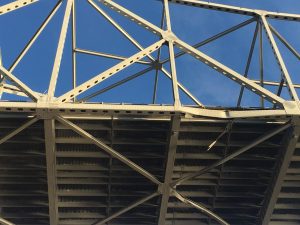Controversial Neoprene Plant Emissions Result in Lawsuit Against School Board
A lawsuit has been filed against the St. John the Baptist Parish School Board as a result of potentially carcinogenic emissions from a nearby neoprene manufacturing plant. The plant, located in Laplace, Louisiana, is one of only a few in the country that produces polychloroprene, a solid substance used to make adhesives, automotive or industrial parts, coatings, dipped goods, neoprene wetsuits, and the like. Consequently, however, manufacturing plants of this kind emit into the air a gaseous form of the liquid chemical chloroprene, which the Environmental Protection Agency has deemed to be a “likely carcinogen”.
The chemical plant has been owned by Denka Performance Elastomer since 2015, but it was formerly owned by Dupont Performance Elastomer who operated the plant since 1969. The specific health effects of chloroprene are not definitively known; however, many local residents are concerned that they are at risk. These fears have been previously articulated in lawsuits against Denka, but now those fears are directed at the school board. According to the case, which was filed by a parent whose child attends the school, “There is presently and has been for years a very serious health hazard and/or life-threatening health hazard to the children/students who attend school at Fifth Ward Elementary School.”
In response to the suit, the EPA established six monitoring stations around St. John Parish, one of which was located at the school in question, and data confirmed the suspicion of high chloroprene levels at the school. Denka, however, maintains the position that chloroprene is being wrongly depicted as a harmful chemical. According to the 2015 National Air Toxics Assessment also conducted by the EPA, St. John Parish residents have the highest risk of cancer from an airborne pollutant, but it is unknown if this risk is due to chloroprene or some other cause. With more research being conducted by the day, the parish school board is determined to prove the safety of its students.
 Louisiana Lawyer Blog
Louisiana Lawyer Blog












